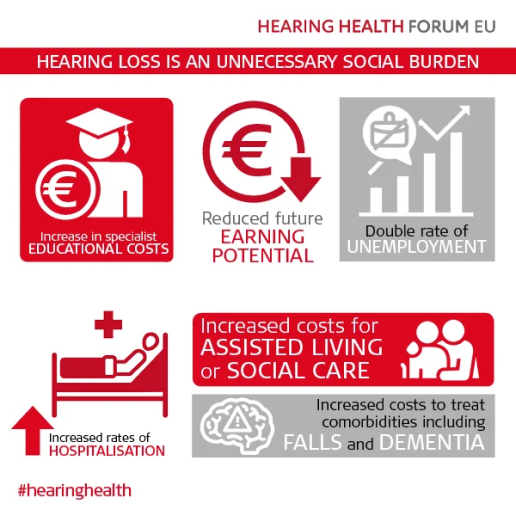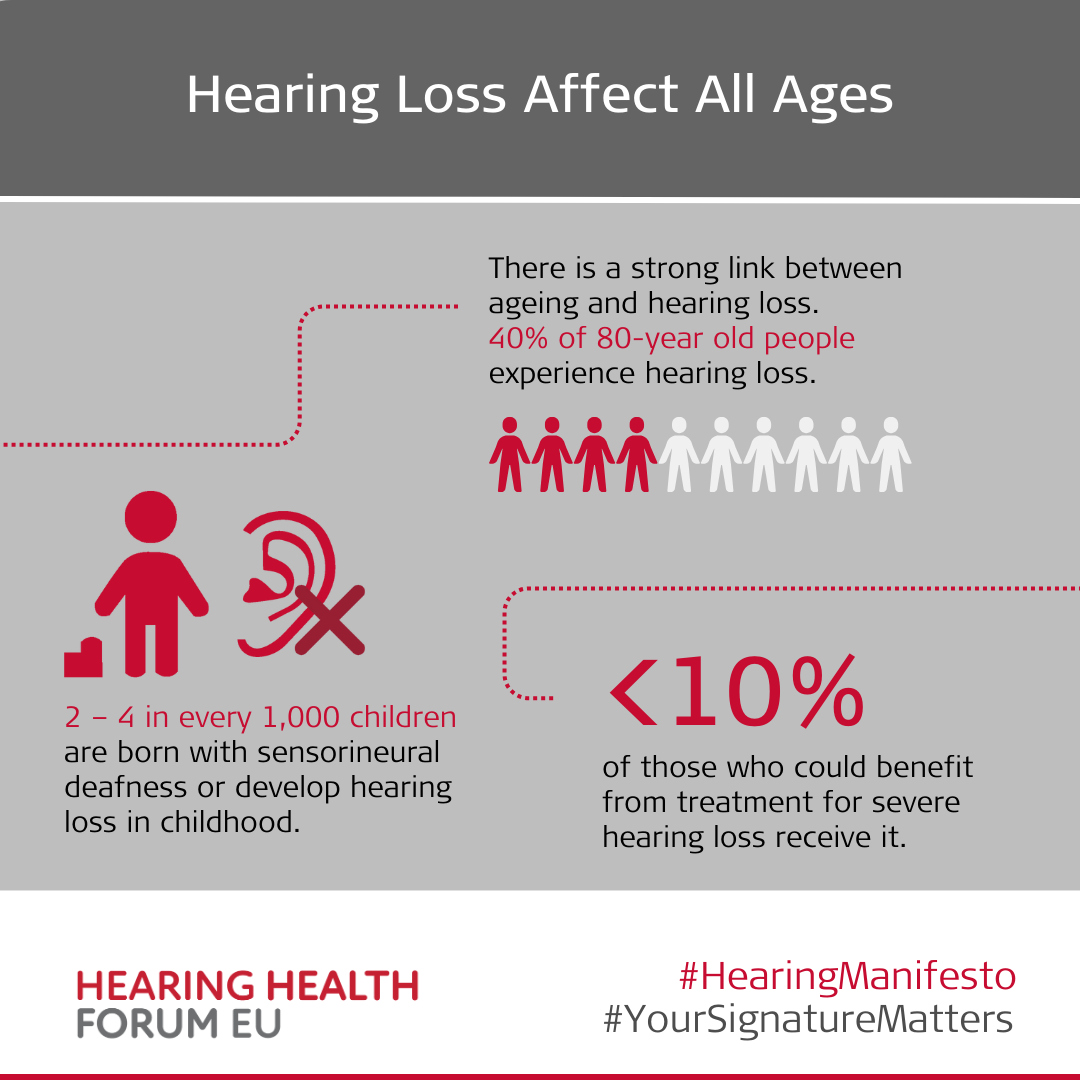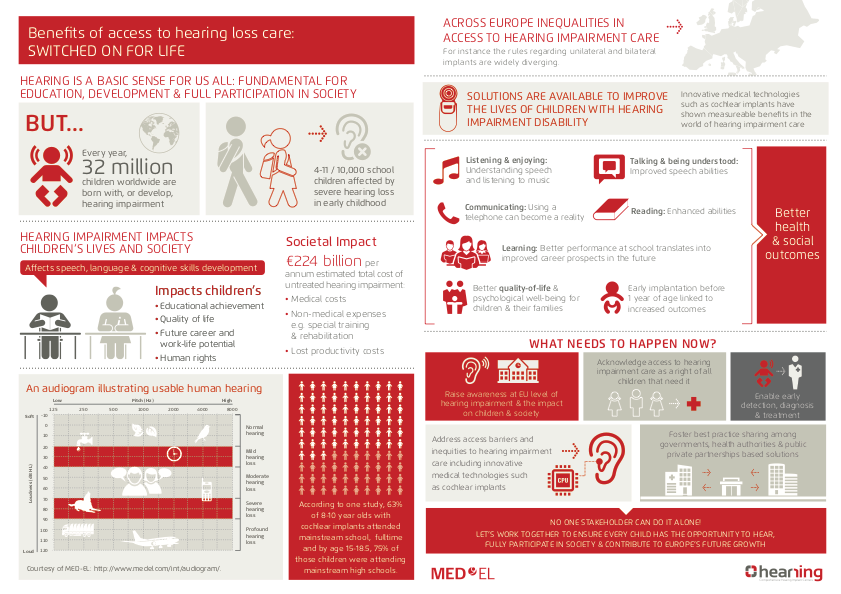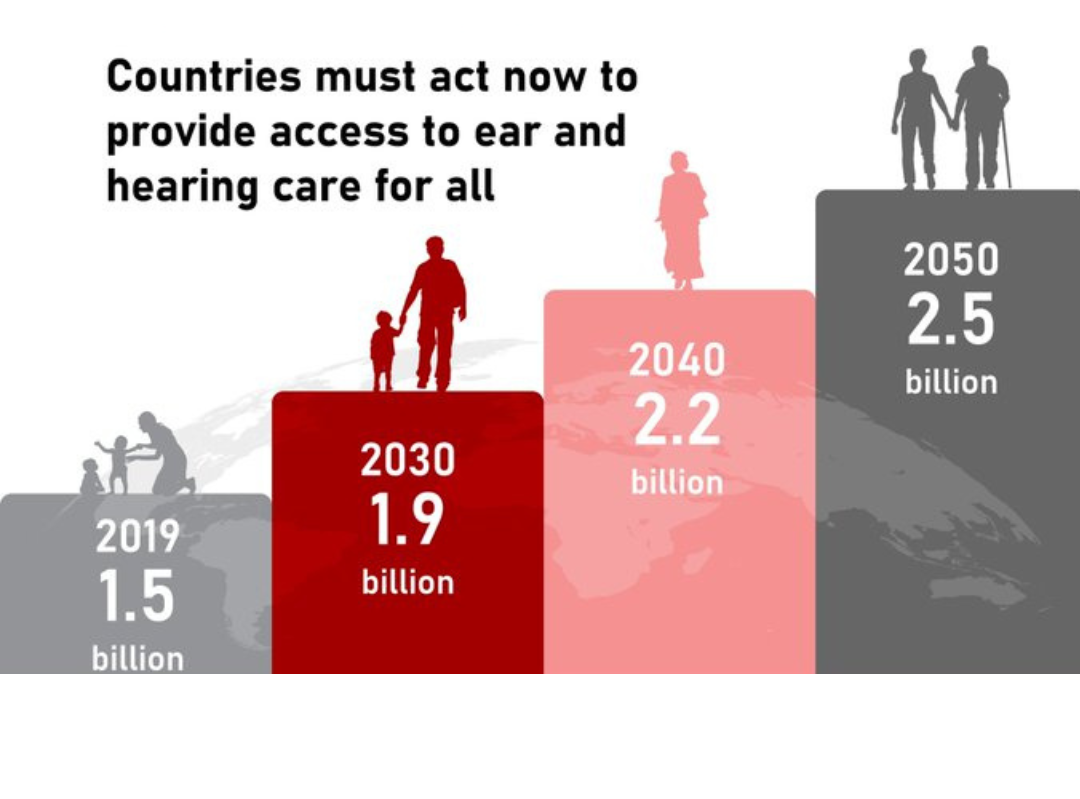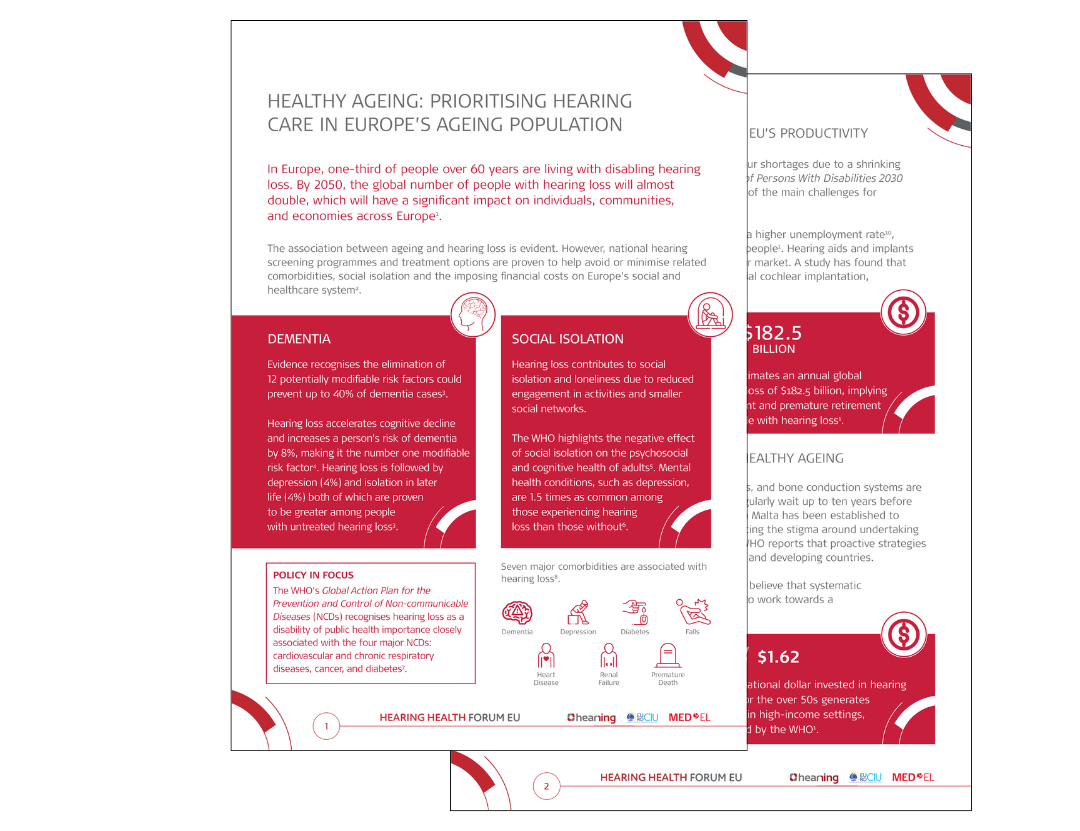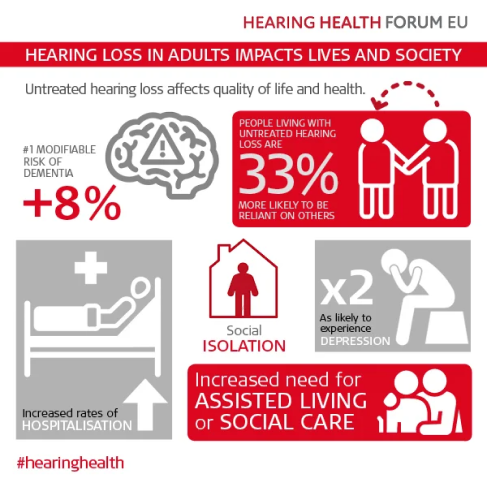Stay up to date about the latest news on hearing loss and policy making.
How can Policy Makers help?
- Raise awareness of the importance of hearing health, the impact of hearing loss and the benefits of hearing loss treatment among the public and healthcare professionals.
- Promote the need for robust national hearing health strategies including diagnosis, rehabilitation, service and maintenance.
- Acknowledge access to professional hearing care as a right.
- Promote access to effective treatments including hearing aids, bone conduction devices, and cochlear implants.
- Explore and invest in effective methods of prevention and rehabilitation for hearing loss.
- Share best practices among EU Member States.

